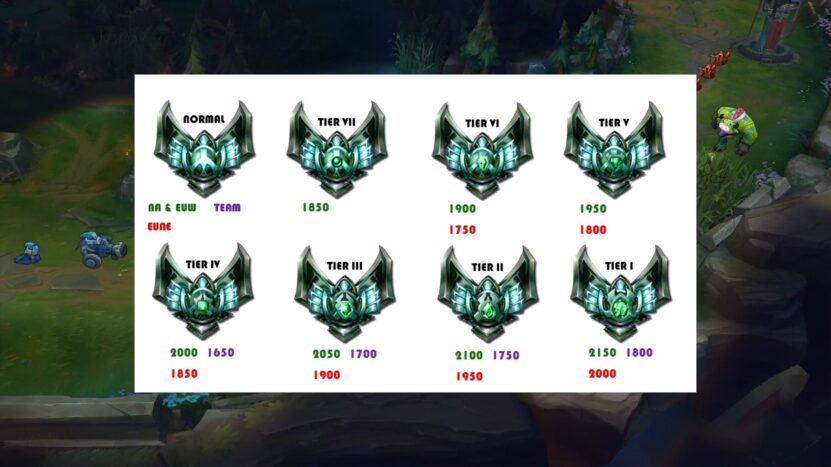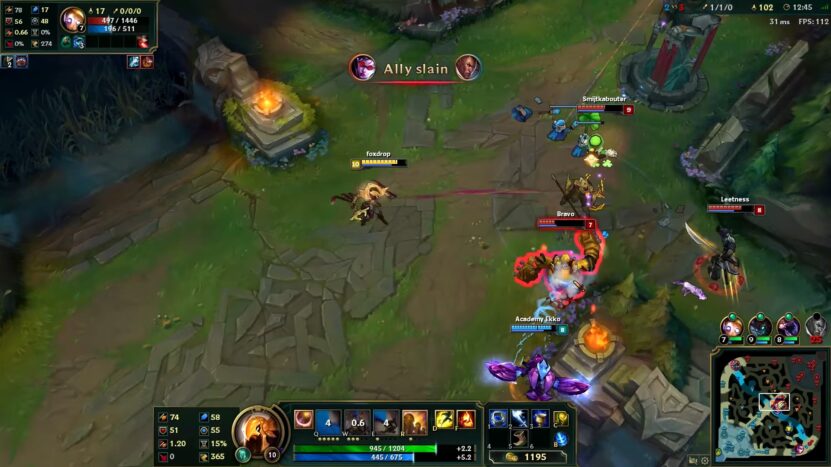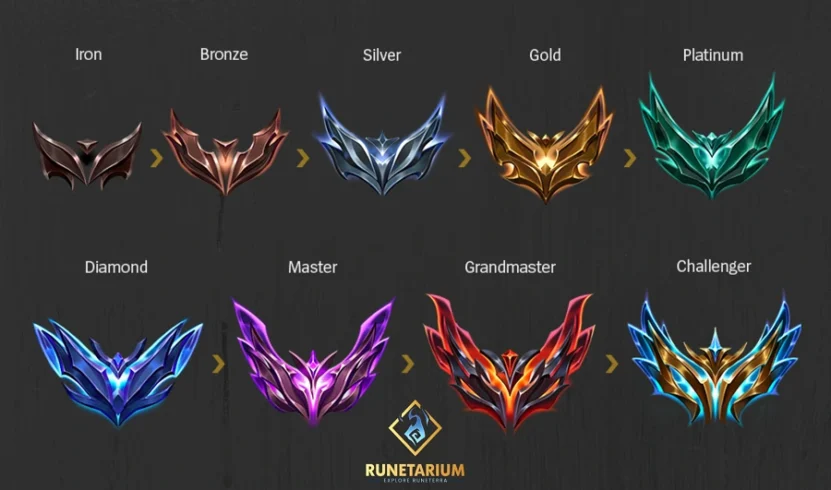Hey, summoners! Ever wondered why you get matched with certain players in your games? Or why some games feel harder than others? The answer lies in three magical letters: MMR.
MMR, or Matchmaking Rating, is the invisible force that determines who you play with and against in League of Legends. It’s like the backstage crew of a theater production, working silently behind the scenes to ensure everything runs smoothly.
And trust me, understanding MMR can make your journey in the Rift a lot more enjoyable.
MMR
Think of it as a hidden score that represents your skill level. While you can’t see it, it’s always there, working in the background, determining who you get matched with in games. Its primary role? To ensure that every game you play is as balanced as possible.
The exact formula Riot Games uses to calculate MMR remains a mystery (all I know, is it has ranked me below my true level!). However, several factors influence it, including wins, losses, and the MMR of your opponents.

Historically, League used the Elo system, a method originally designed for chess, to calculate MMR. Over time, this system has evolved to better suit the needs of a team-based game like LoL.
The Relationship Between MMR and Ranked Play
Normal Games vs. Ranked Games

It isn’t just for ranked games. Even in normal games, there’s a separate MMR working behind the scenes. However, the stakes in ranked are higher.
Your ranked MMR determines your placements, promotions, and even demotions. So, while you might be chilling in normals, remember that ranked is where the real bragging rights are!
Placement Matches
Ah, the start of a new season. The time when everyone’s on edge, trying to get the best start possible. Placement matches play a crucial role in determining your initial MMR for the season.
While they can be nerve-wracking, remember that they’re designed to gauge your skill level. So, give it your best shot, and who knows, you might just land in a higher tier than you expected!
MMR Decay
Ah, the dreaded MMR decay. If you’ve ever taken a break from ranked play, you might have encountered this sneaky phenomenon. The decay is what happens when you’re inactive in ranked games for an extended period. The system starts to slowly reduce your ranking, reflecting the potential rustiness or outdated game knowledge.
How to Prevent Decay
- Stay Active: The simplest way to avoid decay? Play regularly. Even a game or two every couple of weeks can keep decay at bay.
- Stay Updated: If you’re planning a hiatus, try to keep up with patch notes. Knowing about major changes can help you jump back in without missing a beat.
- Practice in Normals: Before diving back into ranked, play a few normal games to shake off the rust.
Understanding MMR is a crucial step in your quest to climb the League of Legends ladder, and rare skins can play a part in this journey.
FAQ
Why can’t I see my MMR in the game client?
Riot Games has chosen to keep it hidden to reduce the focus on a specific number and instead encourage players to focus on broader progression and overall improvement. While third-party sites might offer estimates, the exact number is known only to Riot.
Can duo queuing with a friend affect my MMR?
Yes, duo queuing can influence your ranking, especially if there’s a significant rank difference between you and your friend. The system will try to find a middle ground, which can lead to facing opponents of varying skill levels.
If I switch servers, will my MMR remain the same?
While your rank and LP might transfer when you switch servers, your MMR might undergo a soft reset, especially if the competitive landscape of the new server is different. It’s always a good idea to check with Riot’s official guidelines when considering a server transfer.
Does playing different roles affect my MMR?
Each role you play has its own separate MMR in the positional ranking system. This means if you’re a top-tier mid-laner but decide to try out support, the system will adjust your MMR to match you with players of equivalent skill in that role.
How does the system treat players who are on win or loss streaks?
The system recognizes streaks and will adjust MMR more dynamically. If you’re on a winning streak, it might conclude you’re playing above your current rank and match you with and against higher-ranked players. Conversely, a loss streak might result in facing opponents of a slightly lower rank until you stabilize.
I’ve heard of “MMR Hell.” Is it real?
A term used by players to describe a situation where they believe their MMR is so low compared to their actual skill that climbing becomes extremely difficult. While bad streaks can happen, consistent performance and improvement will always lead to climbing in the long run. It’s essential to focus on personal growth and not get too hung up on short-term setbacks.
Final Thoughts
Understanding MMR can truly transform your League of Legends experience. It’s the silent puppet master, ensuring every game is a challenge, every victory is sweet, and every loss is a lesson.
As we wrap up, remember that MMR is just a number, and its never a true representation of your skill. I for one know I’m much better than my ranking. But what truly matters is the fun, the friendships, and the epic plays that make every game memorable.
At the end of the day, League is a game. Enjoy the journey, celebrate the highs, learn from the lows, and always, always strive to be the best version of yourself, both in and out of the Rift.
Here’s to many more games, countless victories, and an ever-climbing MMR. See you on the Rift, summoners!
